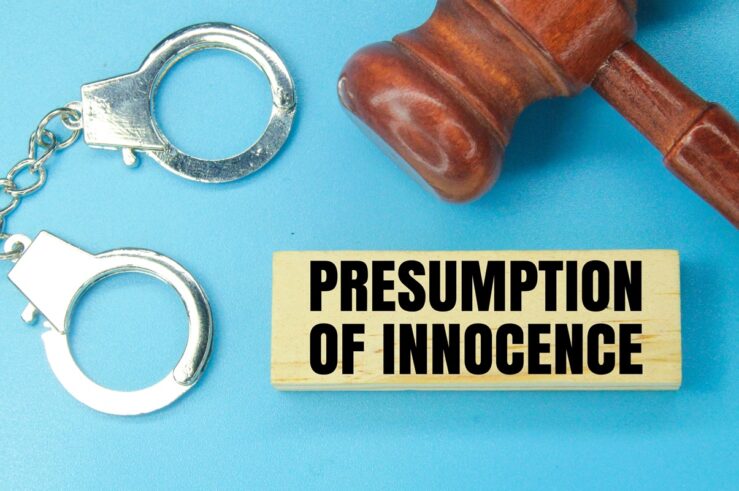Trade secrets are frequently one of the most powerful forms of intellectual property that a company has in its competitive arsenal. Particularly given the ongoing interest in whittling away at the property rights of patent holders (e.g. the enhanced IPR process, and even the more tame VENUE Act), trade secrets are a critical means for firms to obtain and retain advantages in highly competitive markets.
Yet, historically the scope of federal recognition of these quasi-property rights was exceedingly circumscribed. That is until yesterday when President Obama signed the Defend Trade Secrets Act (“DTSA”) into law. The Act is designed to create a uniform body of federal law that will allow jurisdiction-straddling entities to more effectively enforce their often very valuable interests in proprietary information. Despite the handful of critics of this effort over the last few years, the law passed Congress with minimal friction, and, at least at this early stage, seems like a fairly laudable step in the right direction.
The Act contains a number of important provisions, including providing uniform federal jurisdiction over trade secret actions across the United States, the potential for civil seizure of instrumentalities of misappropriation when injunctions would be insufficient, a clear damages calculation and recovery of fees, and certain safeguards that protect employees from suit when switching employers or engaging in whistleblowing.
A few of the provisions of the law are particularly interesting and bear some examination, as they will undoubtedly be hot spots for litigation in the years to come.
First, the DTSA does not preempt existing state trade secret laws. Instead it creates a federal overlay as a separate cause of action. The critics believe that this gives plaintiffs too much power insofar as they can now pick and choose whether to pursue a claim in state or federal court. Further — and this criticism I take more seriously — adding a federal law doesn’t do much to clarify the ways that an individual might run afoul of trade secret law. If anything it marginally increases uncertainty as there is now one more law to consider on top of all of the state trade secret laws.
Nonetheless, even though a company is free to bring both state and federal trade secret actions against an individual — and likely will do so when there is a misappropriation — I’m not sure why this is a bad thing. If a company sues a would-be spy, the point is not to bury them in protracted litigation, so much as it is to keep them from immediately fleeing to a foreign jurisdiction with valuable information. Thus, the federal jurisdiction provides a more expedient tool that steps around the inherent latency in obtaining an order from one state court that subsequently one or more other state courts need to recognize and enforce in order to prevent the release of the information.
And when a suit is brought between two companies, it seems hard to believe that an additional federal claim on top of a state claim will really be the difference between life or death for the companies. The litigation would be expensive and time consuming whether or not the federal claim exists, and in all likelihood the discovery and legal arguments will end up being fairly identical (the DTSA is modeled, more or less, after the Uniform Trade Secrets Act, which has been adopted to varying extent by 48 states).
Second, under “extraordinary circumstances,” the DTSA allows for an ex parte court-ordered civil seizure of any misappropriated trade secrets, or property associated with the theft (e.g. computers, flash drives, etc.). And the relevant question here is, of course, just how “extraordinary” must an “extraordinary circumstance” be ? Likely, very extraordinary.
In this era of networked devices, why would a defendant who seeks to steal trade secrets not immediately transfer the valuable information to an offshore server? I’m sure there have to be instances where such a transfer fails to take place — perhaps in an effort to evade detection an individual might strictly keep information on a thumb drive, thus making civil seizure a good option. Still, I don’t quite grasp the utility of this provision beyond a really narrow set of circumstances, particularly given the equitable powers that district courts already have.
Also, the aforementioned critics essentially agree with this point, notwithstanding having pointed it out as a problem. They described the provision as possibly “superfluous” since a plaintiff needs to make a showing that Rule 65(b) preliminary relief would be inadequate. I am as big a fan of property rights as the next classical liberal, but I have trouble seeing how this provision will end up being a net negative.
Courts are generally reluctant to seize property when there are other forms of relief available, and given the fact that any proprietary information will most likely get out instantly anyway, it seems basically impossible, under most claims that would be brought, to get a seizure order that would have any effect.
What’s left, then, are very narrow, rare circumstances in which a judge really sees an urgent need to seize property. And, likely, in the very few cases where seizure will be appropriate, the plaintiffs most emphatically won’t regard the provision as superfluous, while in the overwhelming majority of cases, defendants needn’t fear the provision at all.
One of the more prominent concerns of critics is that the federal law will be a tool with which to control or punish former employees as they move on to work for competitors. However, even this concern appears overblown. Professor Sharon Sandeen, for example, believes that the Act will create “trade secret trolls” who will be able to ruin the careers of former employees (although, in her testimony she doesn’t exactly spell out how the DTSA in particular facilitates this, and existing state laws do not). Nonetheless, the DTSA contains a provision that disallows enforcement against individuals under the “inevitable disclosure” doctrine. That doctrine, sometimes allowed in state courts, provides former employers with the ability to seek damages and injunctions when a former employee goes to work for a competitor and, during the course of that new employment, it is “inevitable” that trade secrets would be disclosed. I haven’t done extended research on that doctrine, but at least its inability to be applied to DTSA claims seems to answer critics’ concerns reasonably well.
On the whole, the law seems aimed at helping companies that depend upon trade secrets to vindicate their interests in a timely and effective manner, and with minimal downside to employees. Although it is somewhat perplexing that the law does not displace state laws — certainly that would have added a degree of clarity. If anything, the DTSA provides for an extension of trade secret protection that Congress already began in 1996 with the Economic Espionage Act. That Act, a criminal law, makes it a crime punishable by a fine and up to ten years in prison when an individual misappropriates trade secrets when undertaken in connection with a foreign power. The shortcoming in that law, however, are obvious: (1) it requires the involvement of a foreign government, which is just not the common case for industrial espionage, and (2) it relies on a federal prosecutor to take up the case. The DTSA, on the other hand, gives companies what seems like a long overdue federal right to curb similar behavior in the more ordinary circumstance.




